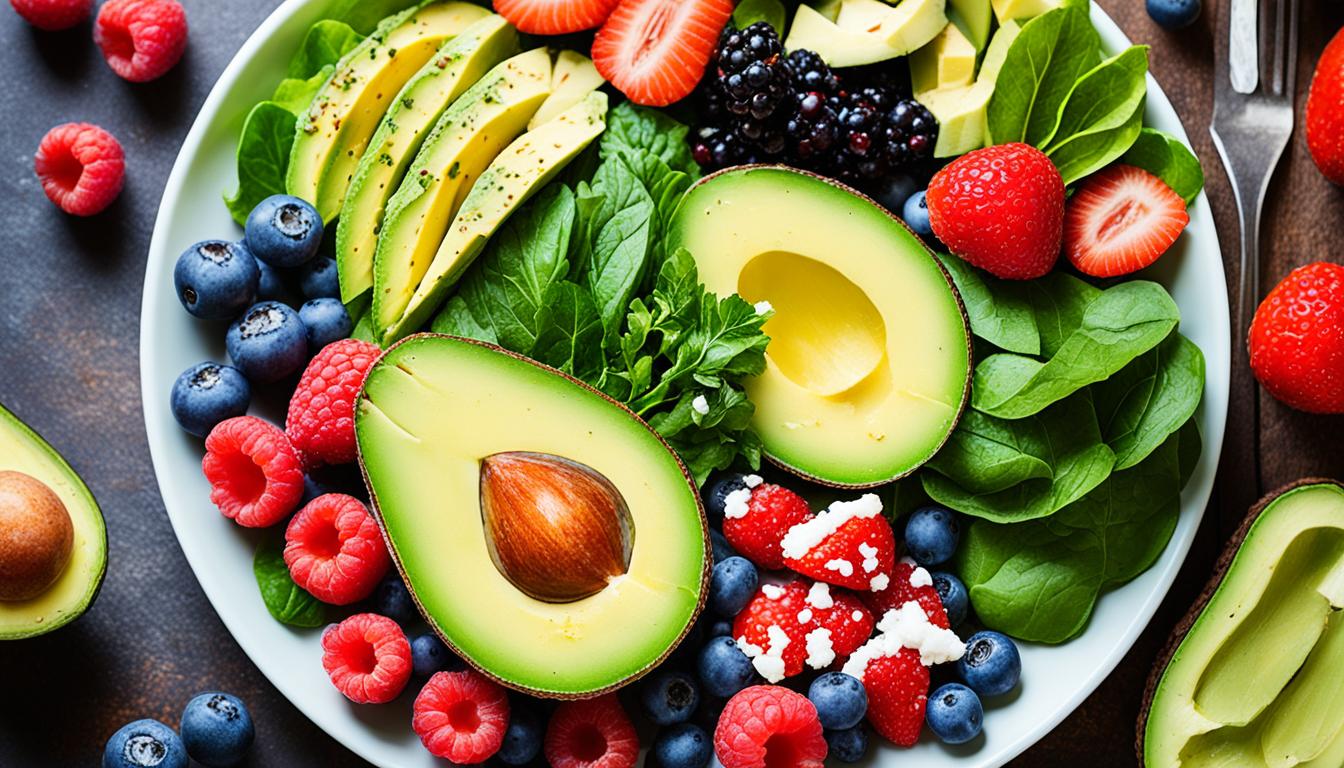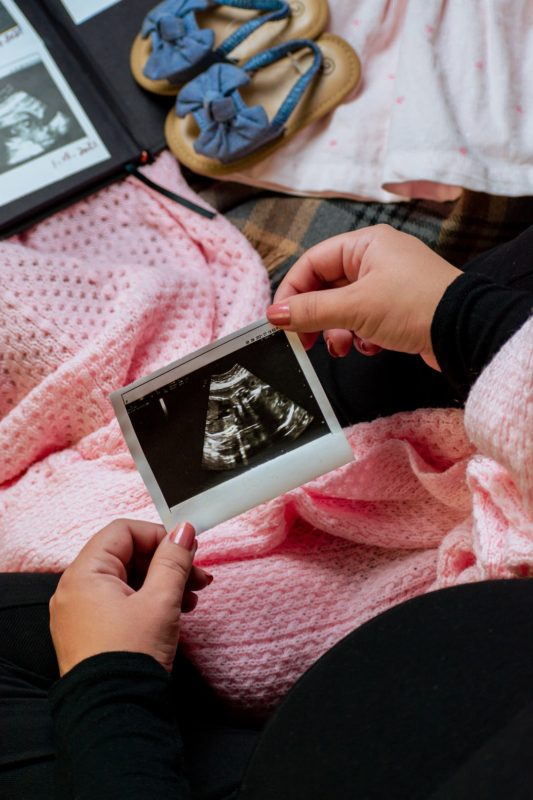Acne isn’t just about looks. It can shake our confidence deep down. Dealing with PCOS acne means I’m with you. That personal fight with acne makes me get how tough it is. We try so many skin products, use makeup to hide, and avoid social scenes feeling less than our best.
But, the silver lining is, your diet can change the game. A diet that helps balance hormones, aimed at PCOS, is crucial. It’s a key player in handling this tough skin condition.
In this piece, we’ll look into how PCOS and acne dance together. We’ll see how a certain diet can heal PCOS acne from inside out. Plus, we’ll give you real tips on putting skin-loving foods in your meals every day.
So, ditch the quest for that magic skin fix. Say hi to a glowing, healthy face with what you eat. Let’s kick off your path to clear skin and strong confidence!
Key Takeaways:
- Acne can be emotionally challenging, impacting our self-esteem and confidence.
- A hormone-balancing diet for PCOS-related acne can help address the root causes of breakouts.
- By making simple changes to your diet, you can achieve clear, radiant skin from within.
- This article will provide practical tips and guidelines for incorporating acne-fighting foods into your daily routine.
- Say goodbye to endless skincare products and hello to a clear, healthy complexion through the power of nutrition.
How PCOS Causes Acne
PCOS can cause acne because of changes in hormones. It’s linked to high levels of androgens, like testosterone. These changes affect the balance of reproductive hormones, leading to pimples.
Androgens being too high in PCOS make the skin’s oil glands produce more oil. This oil, along with too many dead skin cells, can block hair follicles. When these follicles get blocked, they can get sore and turn red, forming acne.
In PCOS, acne can show up as whiteheads, blackheads, or even deep cysts. Cystic acne is especially painful and can scar.
Another part of PCOS that can cause acne is insulin resistance. This makes the body need more insulin to keep blood sugar steady. The extra insulin can also boost androgen production, making acne worse.
Knowing how PCOS and acne are linked is key to treating them. With the right care for hormones and blood sugar, acne can get better.
Hormonal Imbalances and Acne
In PCOS, too much androgen throws off the body’s hormones, making acne more likely. Androgens help control how much oil the skin makes. When there’s too many androgens, the skin makes too much oil and dead skin, creating a good place for bacteria that cause acne to grow.
This excess oil and skin can also lead to more inflammation and redness in the skin.
Insulin Resistance and Acne
Insulin resistance in PCOS can also trigger acne. If the body’s not very responsive to insulin, it needs to make more to handle sugar. Extra insulin then tells the ovaries to make more androgens, worsening acne.
Plus, the more insulin there is, the more IGF-1 gets made. IGF-1 can make the skin produce more oil, making acne worse.
Recognizing the hormonal side of acne in PCOS helps doctors tailor treatments that go to the source. This kind of care can offer better control over acne and help skin health in people with PCOS.
The Impact of Diet on PCOS and Acne
Diet might not fully “cure” PCOS or acne. But it has a big role in easing the symptoms. A good diet can cut down insulin resistance, balance hormones, and boost skin health. To handle PCOS and acne with diet, focus on a few main points:
- Nutrition for PCOS acne: Eating a balanced diet focused on nutrient-rich foods is key. Add lots of fruits, veggies, lean meats, whole grains, and good fats. They give your body the right vitamins, minerals, and antioxidants for healthy skin.
- Relationship between diet and acne in PCOS: Studies show that certain foods, like those with a high glycemic index, might cause acne. To help, opt for low glycemic index foods like whole grains, beans, and less-sweet fruits. These can steady your blood sugar and cut down on breakouts.
- PCOS diet tips for acne: Besides choosing low glycemic index foods, paying attention to your gut is important. Probiotics in foods like yogurt, kefir, and sauerkraut keep your gut healthy, which can help your skin. Also, include omega-3s from fish, walnuts, and flaxseeds to fight acne-causing inflammations.
Cutting out or lowering foods that worsen PCOS, like sugary, fried, and refined items, might also help with acne. Remember, what works can vary from person to person. It’s vital to consult a healthcare provider or dietitian familiar with PCOS for a tailored diet plan.
Image:

A balanced diet can help balance hormones, lower insulin resistance, and boost skin health in PCOS. It’s not a full fix for PCOS and acne, but it does a lot to ease the symptoms and keep skin clear.
PCOS Acne Diet Guidelines
A well-balanced diet is key to dealing with PCOS acne. The PCOS acne diet aims to balance the right nutrients. It uses The Root Plate™ which ensures every meal includes protein, fat, and carbs with fiber.
Non-starchy veggies are critical in this plan. Leafy greens, broccoli, and other colorful vegetables are full of needed nutrients. They help keep your skin healthy.
Plants also contain important compounds like carotenoids. They act as antioxidants, fighting off acne symptoms.
It’s crucial to watch your sugar intake on the PCOS diet. Many high-sugar foods cause more inflammation and worsen acne. You might also try cutting out dairy for a while. Some people find it helps with acne.
The PCOS acne diet focuses on balance, lots of veggies, and less sugar and dairy. These steps can help balance your hormones and keep your skin clear and glowing.
Learn more about PCOS diet recommendations to manage your symptoms effectively.
Gut-Healthy Foods for PCOS and Acne
Improving your gut health is key for managing PCOS and acne. Eat foods that are good for your gut to bring balance back. This supports your overall health.
Prebiotic foods are high in fiber and feed good gut bacteria. Bananas, artichokes, and oats are some examples. Adding these foods to your meals boosts your gut’s health.
Probiotic foods have live bacteria and improve your gut bacteria too. Foods like sauerkraut, kimchi, and yogurt are probiotic. Including these foods in your diet helps grow good bacteria in your gut.
Adding both prebiotic and probiotic foods to your meals helps your gut stay healthy. This may also ease PCOS and acne symptoms.

Focusing on gut-healthy foods can aid in managing PCOS and acne. Also, adding omega-3s and antioxidants to your diet can help. These nutrients are good for fighting both conditions.
Omega-3 Fatty Acids for Skin Health
Eating omega-3 fatty acids can really help with PCOS and acne. These fats fight inflammation well. This can make your PCOS and acne symptoms better.
Getting enough omega-3s is super important for treating acne. They lower the body’s inflammation levels. This can reduce redness, swelling, and soreness from acne.
Omega-3s also help with controlling how much oil your skin makes. This means your skin might not get too oily. And this can lower the chance of your pores getting clogged.
To get these omega-3 benefits, eat foods with lots of healthy fats. Some good choices are:
- Fatty fish like salmon, mackerel, and sardines
- Chia seeds, flaxseeds, and walnuts
- Greens such as spinach, kale, and Brussels sprouts
- Healthy oils including extra virgin olive and avocado
Eating these foods often can fight inflammation, making your skin and PCOS better. It’s a simple and effective step to healthier skin.

Antioxidants for PCOS and Acne
Antioxidants are key in fighting oxidative stress and inflammation. They tackle free radicals that harm our cells. By eating foods high in antioxidants, you can boost your skin’s health and help with acne.
Some foods packed with antioxidants include:
- Dark leafy greens – Spinach, kale, and Swiss chard are full of antioxidants, vitamins, and minerals.
- Berries – Strawberries, blueberries, and raspberries offer rich antioxidants and many health benefits.
- Citrus fruits – Oranges, lemons, and grapefruits are loaded with vitamin C and good for your skin.
- Green tea – This drink has strong antioxidant properties and can lower inflammation, helping with acne.
Eating a variety of these foods helps with lipid and glucose metabolism. This is vital for PCOS management. Antioxidants also lessen oxidative stress tied to PCOS. They fight inflammation and boost skin health, key in managing acne for PCOS patients.
Studies agree antioxidants are good for acne. A Journal of Drugs in Dermatology article says they cut sebum, lessen acne, and better skin texture.

So, bring these antioxidant-rich foods into your meals to aid skin health and ease acne in PCOS. Always talk with a pro or a nutritionist to shape your diet. They can guide you on getting the right amount of antioxidants for your body.
Foods to Avoid for PCOS Acne
Some foods can make PCOS worse and cause more acne. Knowing what to avoid helps keep your skin clear. High-glycemic foods like sugary snacks, white bread, and processed cereals raise your blood sugar fast. This can make your body produce more sebum, cause inflammation, and lead to acne. Choosing foods with a low glycemic index such as whole grains, beans, and fresh fruits can keep your blood sugar steady. This lowers the chance of getting acne.

Eating dairy, especially low-fat and skim milk, might worsen inflammation and raise androgen levels, leading to more acne. Cutting back on dairy and finding calcium in fortified plant-based milk or leafy greens could help those with PCOS.
To learn more about which foods to avoid, check out this source.
Watching what you eat can really help with PCOS acne. By choosing foods that balance hormones and reduce inflammation, you can improve your skin.
Conclusion
In conclusion, we need more than just dietary changes to handle PCOS acne. A healthy diet is key, but it’s not a cure on its own. A diet focused on the right nutrients and staying away from certain foods can help lessen acne. It also supports balancing our hormones, which is vital for people with PCOS.
Eating well is only part of the solution, though. Good skincare, managing stress, and creating a personal plan are also very important. Team up with your doctor or a skincare expert to find what works best for you. They can help you build a plan tailored to your unique needs.
Dealing with PCOS acne means being patient and sticking to your changes. These steps are part of a bigger plan for better skin and health. Let’s fully commit to looking after ourselves. With the right approach, we can achieve the beautiful skin we dream of.













